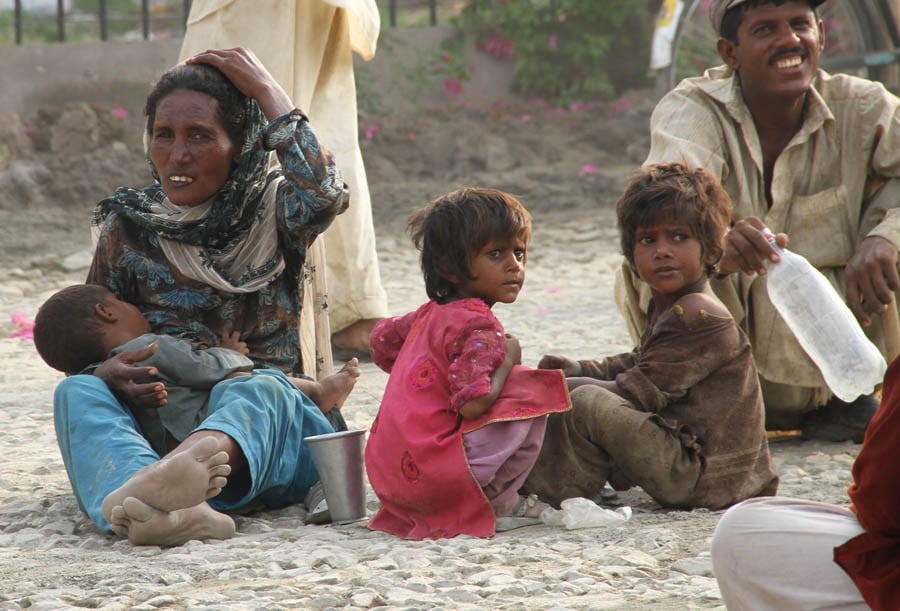
Will the creation of Ministry of Social Protection and Poverty Alleviation Coordination streamline the functions of various social welfare programmes?

Prime Minister Imran Khan launched the National Poverty Graduation Strategy on July 5, a project under Ehsas Programme aimed at helping the poor uplift their living standards. The programme has been initiated by the newly-created Ministry of Social Protection and Poverty Alleviation Coordination (MSPPAC), which will be working for ensuring cohesion in social protection programmes of the federal government.
The federal government created MSPPAC in April this year to bring all major departments and organisations working on social protection and welfare under one umbrella and a well-coordinated system.
The new ministry aims to address current fragmentation in the federal components (institutions and organisations) like Benazir Income Support Program (BISP), Pakistan Bait-ul-Mal (PBM), Zakat, Pakistan Poverty Alleviation Fund (PPAF), Trust for Voluntary Organisations, Center for Social Entrepreneurship and secretariats of the Poverty Alleviation.
Through a working group, it will also coordinate with other ministries social protection projects/departments. All these projects are now brought under Ehsaas -- a compendium of social protection policies -- through this new ministry.
The government launched the Ehsaas programme in March "to reduce inequality, invest in people and lift lagging districts". The government aims to work with all stakeholders -- public, private, civil society, philanthropists and expatriate Pakistanis -- to ensure the success of this social protection umbrella policy.
Previously, the BISP was under the Ministry of Finance; the PBM was under Cabinet Division; Zakat was under Religious Affairs and the PPAF was under the ministry of planning, development and reform.
"The federal government has an equalisation role. After long deliberations, all these social protection components under the federal government are brought under one division to remove fragmentation and bring cohesion," Dr Sania Nishtar, who is looking after this new ministry, tells The News on Sunday.
A total sum of Rs193 billon has been allocated for the Ehsaas programme for the current fiscal year (2019-2020) which includes Rs180 billion for the BISP, Rs5 billion for the PBM and Rs8 billion for the PPAF.
Dr Nishtar says the ministry has found duplication and overlapping of Rs38 billion in the funds. "This National Poverty Graduation Strategy, launched on July 5, is a project of Rs43 billion which includes Rs38 billion recovered from the overlapping of funds’ utilisation in different heads in different institutions," she says.
"We launched this new graduation programme of Rs43 billion by adding up Rs5 billon in the existing (duplicated) money. Now the functions and mandate of every programme will be properly defined and there will be no overlapping," she adds.
The government launched the Ehsaas programme in March "to reduce inequality and invest in people. The government aims to work with all stakeholders -- public, private, civil society, philanthropists and expatriate Pakistanis -- to ensure the success of this social protection umbrella policy.
The BISP will be dealing with the cash transfers while the PBM will be focusing on the welfare of the people and demand side. "There is an emphasis on making a proper system and a model of governance in these institutions through a governance policy, which is being finalised," says Dr Nishtar, adding, "A mandatory guidance is being provided and that would be forwarded to provinces too."
"There will be a clearly laid out policy, code of conduct, whistle blowing policy, accountability and integrity while running the system. Some projects will be run by the relevant ministries but the new ministry will be coordinating with them through working groups to remove overlapping. After improving the governance in these institutions and projects, there will be focus on programmes," she maintains.
The strategy of this new graduation programme mainly consists of three components -- interest-free loans, skill training and transfer of small assets, such as sewing machines, livestock and agricultural equipment to the needy youth.
According to estimates, over 16 million people will benefit from the programme and almost 80,000 people will be provided interest-free loans every month for four years. Special Assistant on Social Protection and Poverty Alleviation Dr Sania Nishtar says the programme will be initiated in 100 poorest districts of the country and reach over 16 million people.
On the other hand, there is scepticism about this challenging task of bringing a uniform and transparent system in the social protection project. Slight resistance from different ministries and departments for losing power can be a problem in the beginning.
"It is good to have social protection programmes under one window set-up but merger of such programmes and taking them over from different divisions and ministries is not an easy task. Usually, there is always resistance while losing power, authority or discretion," says Pervez Tahir, senior economist. However, he thinks that after the 18th Amendment in the Constitution, social protection is a provincial subject and as such consolidation should have been done at the provincial level. "The federation should have ended all such programmes by decentralising these institutions."